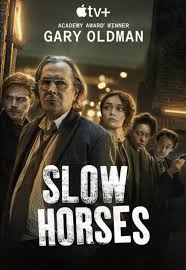An Inside Look at Slow Horses: The Espionage Series

Introduction
Slow Horses has emerged as a pivotal addition to the espionage genre, capturing the attention of both readers and viewers alike. Adapted from the novels of Mick Herron, this series delves deep into the lives of misfit spies who navigate the murky waters of intelligence work. Its timeliness and suspenseful narrative reflect modern geopolitical complexities, making it increasingly relevant in today’s world.
Synopsis of Slow Horses
The series centers around a group of British intelligence agents, relegated to a unit known as Slough House. This group consists of those who have made critical mistakes in the field, effectively ending their prestigious careers. Their leader, the cynical and disillusioned Jackson Lamb, embodies the struggles and challenges these agents face.
Recent Adaptations and Popularity
With the recent release of its second season on Apple TV+, Slow Horses has garnered acclaim for its riveting storytelling and multifaceted characters. Starring Gary Oldman as Jackson Lamb, the show blends dark humor, suspense, and intricate plots, enabling it to stand out among typical espionage narratives. Critics have praised its sharp writing and performances, noting how it captivates viewers while exploring the flaws and humanity of its characters.
The Cultural Impact
The show’s success is indicative of a larger trend in television, where complex characters and moral ambiguity are increasingly valued. Viewers are drawn to the authenticity and psychological depth seen in Slow Horses, prompting a renewed interest in espionage literature and adaptations. Its combination of humor and thriller elements appeals to a diverse audience, making it a significant commentary on contemporary intelligence practices.
Conclusion
As Slow Horses continues to build a dedicated fan base and attract critical acclaim, it signals a bright future for espionage narratives in media. This series not only entertains but also provides insight into the world of intelligence and the personal struggles of those within it. As the landscape of storytelling evolves, Slow Horses stands as a noteworthy example of how traditional genres can be reinvented for modern audiences, ensuring its relevance for years to come.









